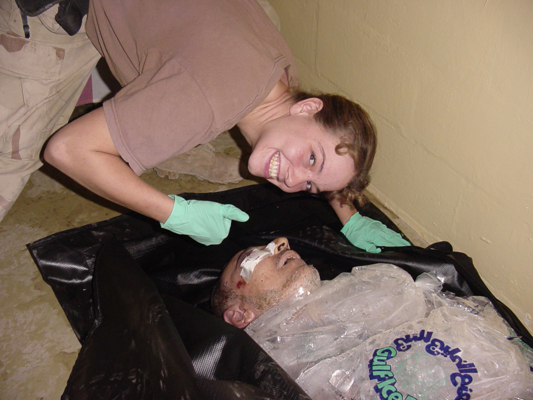Pretty provocative, aren't they? The Documentary, 'Standard Operating Procedure' will almost inevitably produce a negative reaction for the same reasons that these photographs and thousands of others like them will. It is all too easy to point fingers at those individuals involved in these scenes and photographs and condemn them for what they have done. However, is it really appropriate to apply blame to these few individuals? This is not to suggest that what they did was in any way condonable, but perhaps the story is much deeper than how it appears.
Errol Morris created the documentary in order to shed light on the complexity of the situation, but may still leave viewers angry at the soldiers stationed at Abu Ghraib. It is, after all, totally impossible to put ourselves into the shoes of these individuals. Who among us has been in a situation anywhere near as stressful and inhuman as those soldiers? Were they really outright evil people? Was it total chance that those involved all happened to be evil? Who actually thinks that these people would have believed it if they were told what sort of terrible practices they would be involved in? It is easy to say "I would never do that!" when we are sitting in our peaceful, harmless environments, but it is a whole different story when you are actually in the moment and people of authority are right there with you telling you what to do.
Stanley Milgram did not just happen to select all of the inherently bad people. Adolph Hitler did not get 'lucky' that the German army was willing to carry out the horrendous deeds it did. No, I believe this issue goes much deeper into human nature. It goes far beyond what we 'know' we will never do. I am not trying to suggest that everyone would act like these soldiers did given the same context, but I would bet that a far greater number of people would, who would never be willing to admit it to themselves.

